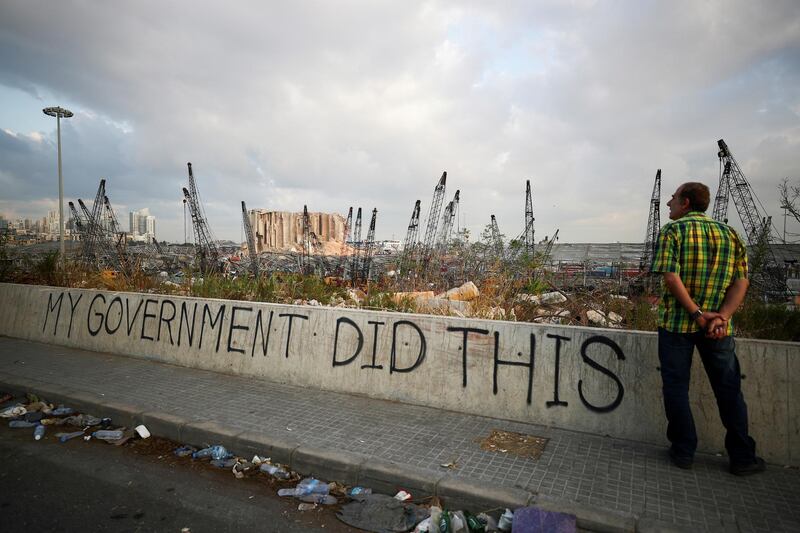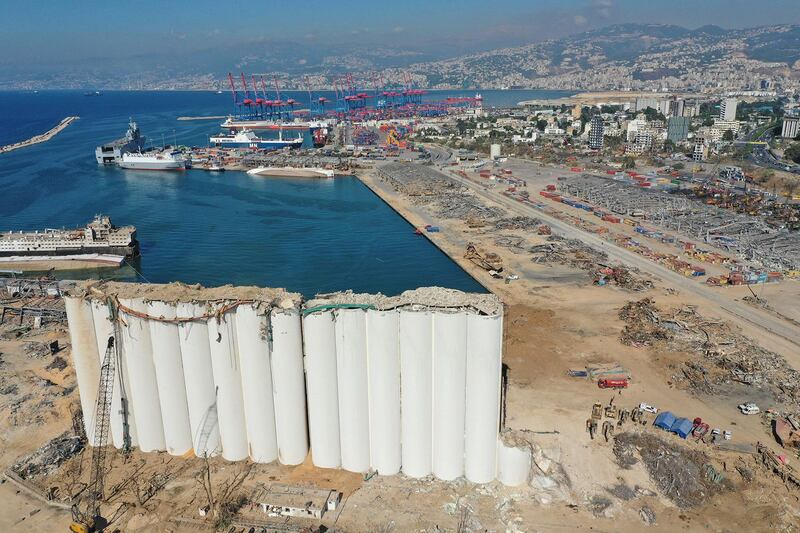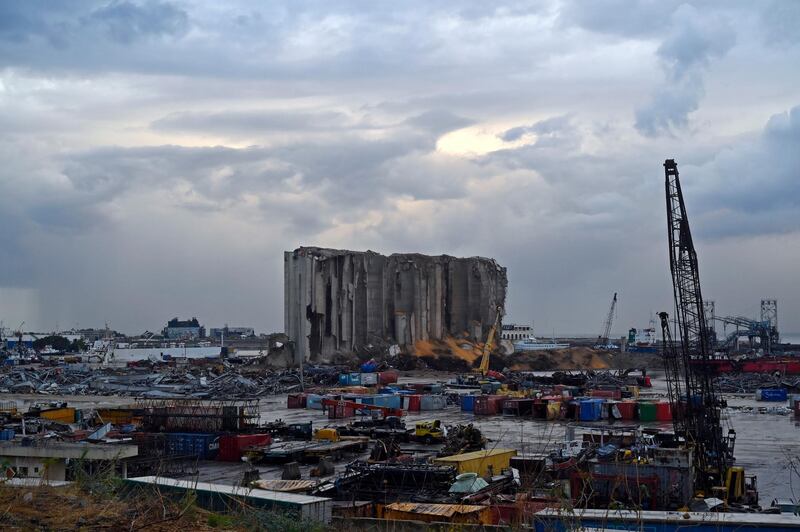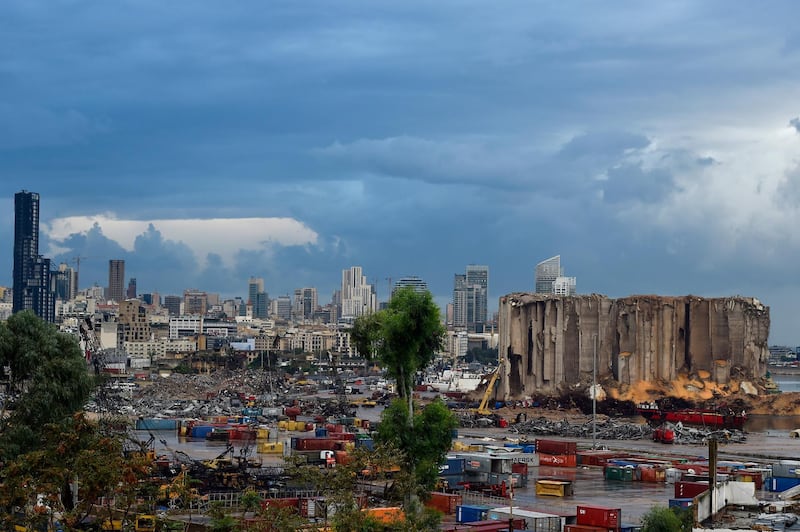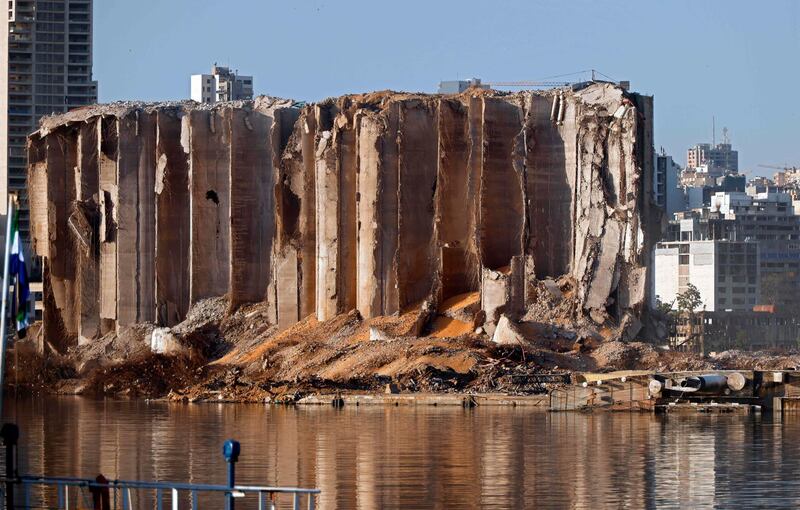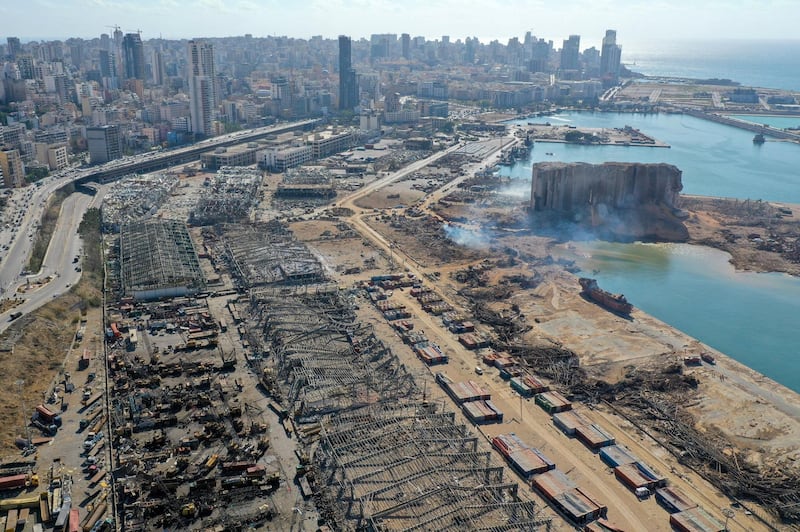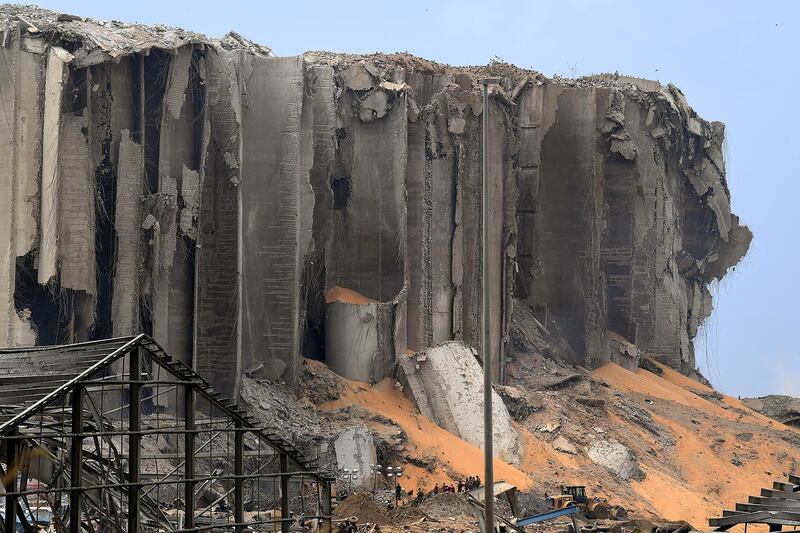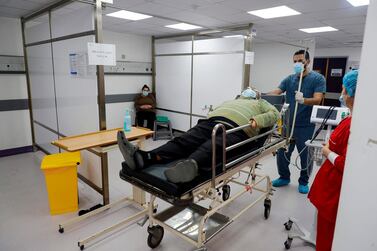The deadly explosion at Beirut's port should be the catalyst for a long-overdue reorganisation of the poorly managed port in Lebanon's capital, the World Bank said.
More than 200 people died on August 4 in one of the largest non-nuclear blasts in recent history.
It caused between $3.8 billion and $4.6 billion in damages, including $350 million at the port alone, wrote the World Bank on Tuesday, in a 40-page note that highlighted decades of inefficiency.
The assessment is titled “Reforming and rebuilding Lebanon’s port sector: lessons from global best practices”.
Caretaker prime minister Hassan Diab resigned following days of intense public pressure and his successor Saad Hariri is struggling to form a Cabinet as politicians fight to control key ministries.
The tragedy came as Lebanon was already reeling from its worst economic crisis, with triple-digit inflation rates and severe devaluation of its currency, as well as the effects of the coronavirus pandemic.
The investigation into the causes of the blast, which is widely viewed as resulting from the unsafe storage of thousands of tonnes of ammonium nitrate for seven years at the port, has been slowed by the refusal of several high-ranking politicians to be questioned by an investigative judge.
The current port sector model, "with its opaque governance and lack of accountability, was one of the underlying factors that contributed to the tragedy”, reads the note.
Established at the end of Lebanon’s 15-year long civil war in 1990, a “Temporary Committee” is responsible for spending the port’s revenues and specifying work needs.
The Temporary Committee is not a legal entity, operates with little governmental oversight and does not publish balance sheets or financial statements.
Despite its name, the Temporary Committee remained in place for decades because political parties could never agree on a board of directors.
Like all government bodies, it must reflect the country’s main religious groups to respect Lebanon’s sectarian power-sharing system. This often slows down or blocks important nominations. Government critics also say that the opacity created by this system acted as a convenient smokescreen for corruption.
“The absence of a real port authority, coupled with mismanagement by the Temporary Committee have involved serious governance, transparency, and accountability issues” writes the World Bank. “This has also resulted in a lack of focus on socio-economic development, a lack of planning, poor safety and declining efficiency of operations.”
The port of Beirut “is the main gateway for the external trade of Lebanon, but it has failed in the key role as an enabler of economic development in the country”, added the World Bank.
As a result, Lebanon’s ports are among the least competitive in the Middle East.
The World Bank reported that after the August explosion, shipping lines and the operator of the container terminal realised productivity was down by around 50 per cent due to maintenance issues on cranes.
Spare parts had been destroyed by the blast, and the private operator of the container terminal does not have the required financial autonomy to acquire new ones due to the nature of its contract with the Temporary Committee, the note explained.
Lebanese PM and three former ministers charged over Beirut blast
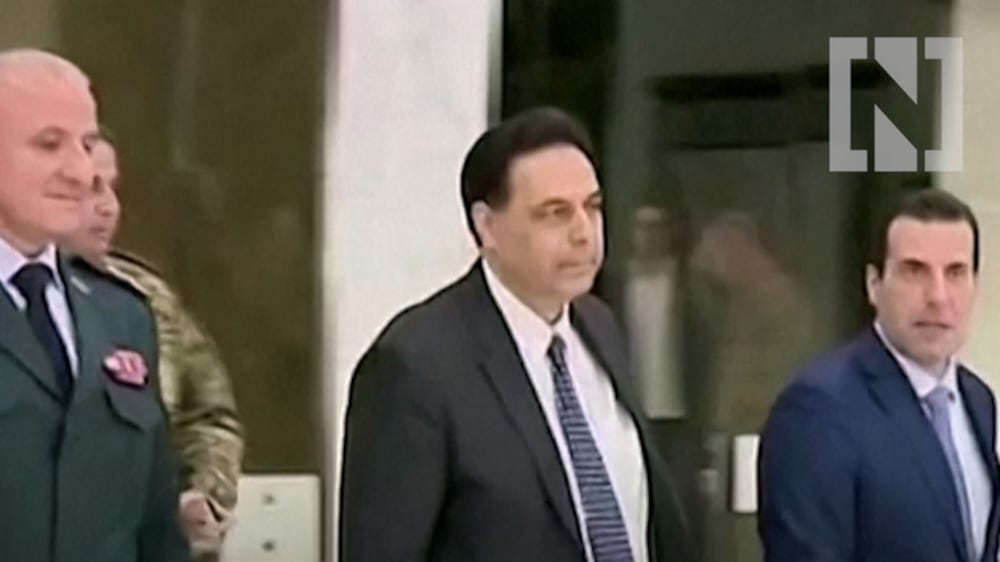
The port’s mismanagement has been compounded by the inefficiency and opacity of Lebanese customs, which is comprised of two rival institutions, the Higher Council for Customs and the Customs Directorate. The adoption of a new Customs law, which has already been drafted, should be a priority of the new Hariri government, said the World Bank.
The head of the Customs Directorate, Badri Daher, was charged and imprisoned along with dozens of lower and mid-range officials after the blast. Multiple media reports have said Mr Daher was aware that dangerous chemicals were stored at the port. President Michel Aoun has refused to dismiss him without a formal Cabinet vote.
To restore trust, the World Bank recommended that a new independent Port Authority be created to replace the Temporary Committee. The Port Authority should conduct transparent nominations and publish annual independent audits. Parliament should pass a Port Law that would clearly identify the mandate of the government bodies overseeing the port. Only then can basic infrastructure be rebuilt, with a transparent bidding process. This, in turn, necessitates establishing an anti-corruption commission and enacting a modern public procurement law.
Lebanon should rebuild its port as a public-private partnership along the model of major world ports such as Rotterdam, New York, Singapore and Tangiers Med, wrote the World Bank. Under this model, the port authority acts as a regulatory body and as a landlord, while port operations are carried out by private companies. This model has historically mobilised significant private sector investments in ports worldwide, with an average of $200 million per operation, according to the World Bank.
Lebanon should avoid privatising its port, a rarely used model that could hinder the government’s ability to steer its development and create a local monopoly, according to the World Bank. When The National met members of the Temporary Committee back in August, they said that, in practice, they managed the port like a private company.
Ignoring this roadmap could exacerbate existing vulnerabilities, generate further crises and delay meaningful change, warned the World Bank.
